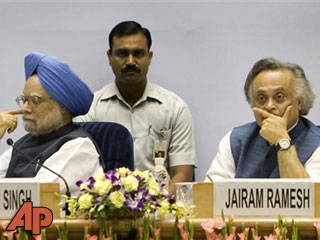Energy crisis termed core hurdle in path of progress
Energy crisis termed core hurdle in path of progress
RECORDER REPORT
The young scholars gathered here from across the country noted that immediate action for resolving energy crisis in Pakistan should be top priority of the government as without energy no productivity is possible.
The government should focus on generating cheap energy from waste that would also help decrease pollution. Setting up small industrial units to generate energy using new technology will help in creating jobs, bringing down line losses and minimising power theft.
Alternative energy - a tool to get reimbursement from developed countries for reducing harmful carbon gas emissions. Developed countries get carbon credit for financing pollution-reducing projects in less developed countries as they are bound to reduce their domestic pollution under a global treaty. They said Pakistan needs to generate its own power from coal, wind and using nuclear technology instead of getting electricity on temporary basis.
Ali Bahadur, a young scientist from National University of Science and Technology (NUST), presented current scenario of energy crisis in Pakistan and said Pakistan imported 8.6 million tons of crude oil, one of the main sources of energy in Pakistan, for which State Bank paid US $6.7 billion during fiscal 2005/2006. In next two decades the country would need 53 percent more of it for which we would give our hard earned money to the oil producing nations. With the fact that proven oil reserves in these countries are fast depleting, Pakistan needs to come up with a strategy for discovering its alternate and indigenous sources of energy.
In view of the situation presented, the scientists suggested exploring alternate energy resources such as getting diesel from crops which is generally called bio-diesel which is produced from edible, non-edible oils and animal fats and can be used in diesel engines without any alteration.
Bio-diesel is considered environment-friendly as it has 80 percent less carbon dioxide emissions as compared to the diesel available in the market. It also has 99 percent less sulphur dioxide. A scientist, Faroha Liaquat, said that average electricity shortfall in the country is only five thousand megawatt whereas Thar coal reserves can give us around fifty thousand megawatt of electricity every year over many centuries.
The participants observed that energy is the lifeline of any economy. "Country has 28.8 million barrels of proven oil reserves and is digging out only 64,000 barrels a day whereas consuming 351,000 barrels a day. The shortfall of 82 percent of its needs is being met by importing oil from abroad by spending millions of dollars", observed Faroha during her talk on solutions to the energy crisis.
She said, research and development in oil exploration by the Pakistanis themselves is the solution to making maximum use of our own resources. Dr Shaukat Ali Khan, former member of the Planning Commission on science and technology, said US $300 billion investment is needed to meet energy requirements of the country for next two decades. He urged on government to make maximum use of alternate energy sources such as utilising wind power and coal reserves of the country.
Dr Atta-ur-Rahman observed that if we put all oil and gas reserves of the world on one-side and methane reserves on the other, methane could give much more energy than all worlds' gas and oil deposits. He stressed the need to explore methane reserves in Pakistan's coastal areas. The seminar was concluded with the note "Let's use our minds, our science and technology to bring about change in our living standards."
--
Gopinath S
Chief Executive
nRG Consulting Services, Bangalore
http://business.vsnl.com/gopinath
http://nrgcs.blogspot.com/
+91 99161 29728


.jpg)

